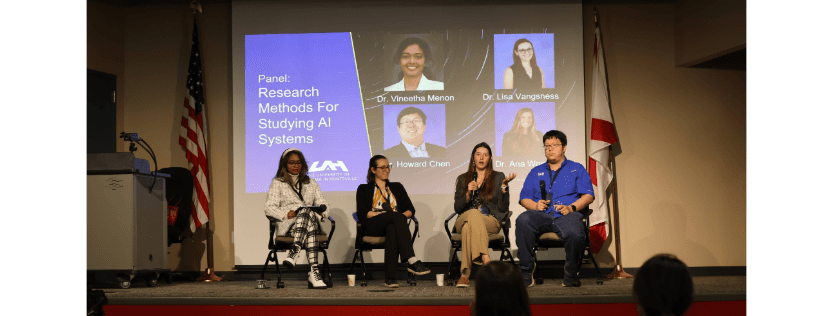U.S. Space & Rocket Center’s second annual AI Symposium: Human-in-the-Loop and the future of innovation
The 2025 AI Symposium, hosted at the U.S. Space & Rocket Center (USSRC) in Huntsville, Alabama, emphasized AI’s accelerating role in business operations, drawing a record-breaking audience and fostering cross-industry dialogue.
“We looked at trends in the rapidly evolving world of AI and focused on how businesses are accelerating the use of the technology in their operations,” said Greg Fasking, vice president of sales, marketing, and communications at the USSRC.
“We wanted this year’s symposium to include conversations with experts, including members of Huntsville’s AI Taskforce, about the value of AI tools in enhancing work quality and productivity,” continued Fasking. “It was that insight that shaped this year’s theme: Human-in-the-Loop (HITL).”
This year’s symposium saw a 20 percent growth in attendance from the first year. A Yale legal scholar opened the event by dissecting AI’s implications for democracy, warning of risks like algorithmic bias and misinformation. Day two included an engaging presentation on AI’s role in Cincinnati Reds baseball, from player selection and performance analytics to business operations. Dr. Larry Lowe, Chief Scientist at RippleWorx, drew standing-room-only crowds as participants explored cutting-edge AI toolsets.
HBJ was able to speak with Lowe regarding a huge development in the AI world which occurred the day before the symposium began: the introduction of China’s DeepSeek, the first viable competitor to OpenAI’s ChatGPT. Its $6 million v3 and R1 models challenged the notion that AI innovation requires exorbitant resources.
Lowe highlighted its efficient use of reinforcement learning and model distillation, enabling high performance with minimal compute. Open-sourced under an MIT license, DeepSeek saw rapid integration by platforms like Perplexity and Microsoft Azure. While initially sparking industry introspection, Lowe noted its democratization could expand demand for AI infrastructure: “If AI becomes as ubiquitous as electricity, companies like Nvidia will thrive supplying the underlying ‘power stations.’”
Christina Lee Storm, an award-winning producer and co-founder of ASHER XR, and Josh Wallace, a filmmaker and digital content creator, delivered a dynamic presentation titled “The Creators’ Creativity Sandbox: Where Human Vision Meets Gen AI.” Their session explored how AI tools are reshaping storytelling, democratizing filmmaking, and adapting to shifting audience demands.
Storm emphasized that independent filmmakers, often working with limited resources, are leading the charge in adopting AI tools. Drawing parallels to her own experience producing indie films, she noted, “When you’re given a small budget, you’re forced to innovate—AI is becoming that creative multiplier.”
Wallace echoed this, highlighting how AI tools like Runway’s generative models enable rapid iteration, reducing reliance on costly traditional pipelines. For example, altering a character’s design in animation—once a labor-intensive process—can now be done in real time with AI, significantly reducing waste and costs.
This aligns with forecasts predicting the rise of 20,000–25,000 AI-driven studios by 2030, each generating over $250k annually through platforms like IZSIT. Tools like Vitrina.ai further democratize access by offering AI-powered matchmaking to help indie creators secure global partnerships.
Despite the allure of new technology, both Storm and Wallace stressed that storytelling is irreplaceable. Wallace shared anecdotes from his comedy career, noting that even AI-generated jokes require a “basis of truth and human connection” to resonate. Storm added, “Without story, all the tools and sexiness mean nothing.” This aligns with the broader symposium theme of Human-in-the-Loop (HITL), where AI augments—rather than replaces—human creativity.
The session also touched on ethical challenges, such as ensuring fair compensation for artists and avoiding bias in AI-generated content. Storm, who serves on Runway’s advisory board, highlighted initiatives like the Hundred Film Fund—a $2 million grant program supporting AI-driven projects while preserving the intellectual property rights of creators.
The symposium underscored AI’s dual trajectory: breakthroughs like DeepSeek are democratizing access, while themes like HITL stress responsible integration. As Fasking noted, “This year was about bridging expertise—from Huntsville’s AI Taskforce to global innovators—to shape a future where technology elevates human potential.” The event solidified Huntsville’s role as a hub for both aerospace ambition and pragmatic AI advancement.















